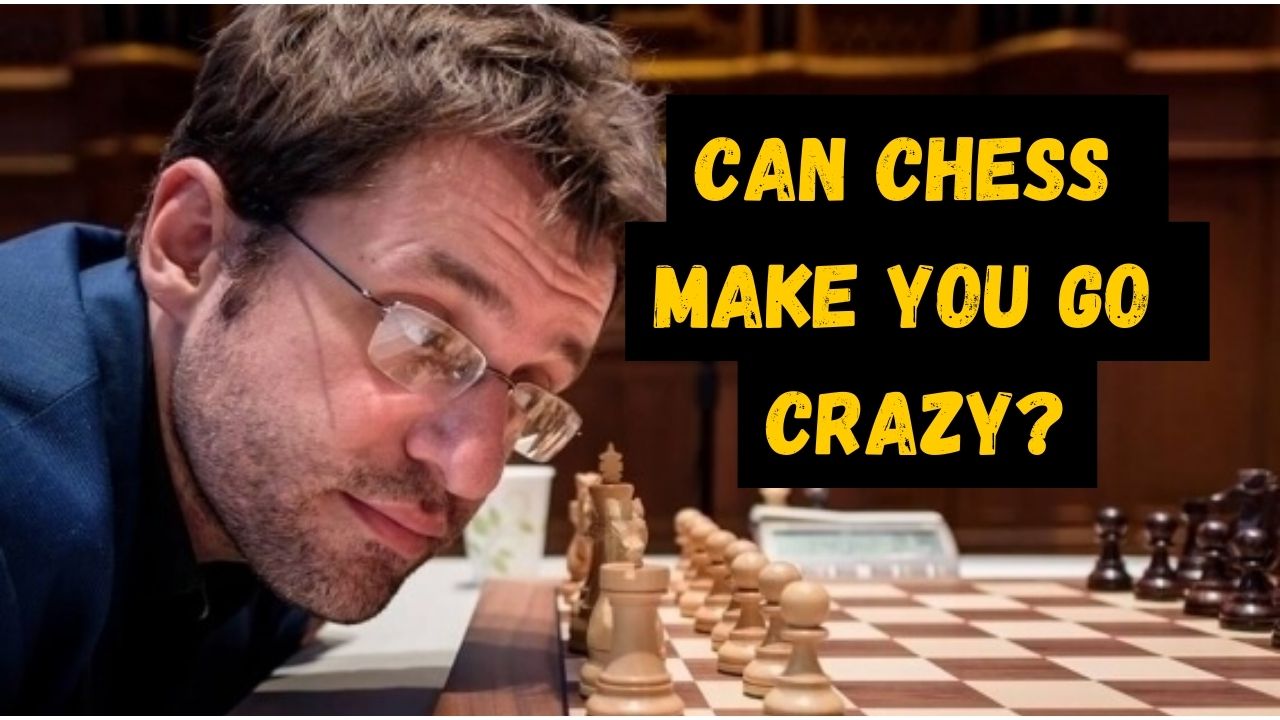No, chess can’t make you go crazy. It’s a game that requires a lot of thinking and brain power but that’s no reason to make someone go crazy. In fact, it’s a fun game mostly decided on skill rather than luck, which is very prominent in other board games.
Reasons Why Chess is Associated with Craziness:
There are two interesting reasons why chess is associated with craziness.
1. It’s a Movie Myth
Films often depict chess players as eccentric, short-tempered, mentally disturbed, or even drug addicts – which is entirely inaccurate.
Such portrayals exist because they sell! Stories gain traction, and chess players are consistently depicted negatively across various aspects of their lives.
The idea that chess players are crazy will persist as long as people continue to watch movies with this concept. Media and cinema often follow trends, and this is a trend among chess players.
Furthermore, it’s easy to capitalize on what’s already successful.
Unfortunately, the narrative of ‘CHESS PLAYERS ARE CRAZY & WEIRD’ is a marketable product that doesn’t require extensive promotion and generates easy profit.
Consider Beth from the TV series The Queen’s Gambit – wasn’t she unconventional even before she began playing chess?
Though The Queen’s Gambit is a fictional story, it effectively showcased that chess was not the cause of Beth’s peculiar behavior.
Her addiction to pills contributed to her difficulties, and playing chess actually provided her with a means of redemption, preventing self-destructive behavior.
Chess players especially the modern chess players are totally opposite of it. Many of them prepare like professional athletes, following fitness and dietary routines. They are very much like normal humans.
2. Chess Players are Often Some of the Most Disliked People
When people don’t like you, they try to find reasons to bring you down. Calling someone crazy is one of the many ways to do so.
Given the prevalence of elitism in chess, it’s very easy to label an arrogant chess player as crazy 😀
To understand the entire elitism dilemma in chess, watch the video from 5:40 onwards:
So Why Do Some Chess Players Go Crazy?
They go crazy due to other issues in their lives. Chess has absolutely nothing to do with their mental health issues. In fact, they were fortunate to have chess in their lives to keep them engaged.
Moreover, the number of chess players who have faced mental challenges is a small fraction, similar to any other profession.
Famous Chess Players Who Had Mental Issues:
- Bobby Fischer: Fischer, one of the greatest chess players of all time, struggled with mental health issues later in life. He became reclusive and made controversial statements, leading to concerns about his well-being.
- Akiba Rubinstein: Rubinstein was a brilliant player in the early 20th century, but his career was cut short due to mental health issues. He spent time in mental institutions and was unable to reach his full potential.
- Paul Morphy: A 19th-century chess prodigy, Morphy experienced mental distress later in life. He became paranoid and reclusive, which affected his social interactions.
- Aron Nimzowitsch: Nimzowitsch, known for his contributions to chess theory, displayed erratic behavior in his later years, possibly indicating mental health struggles.
- Alexander Alekhine: Alekhine, a World Chess Champion, faced periods of alcoholism and depression. His behavior was at times erratic, raising questions about his mental well-being.
- Curt von Bardeleben: Bardeleben, a strong player from the late 19th century, struggled with mental instability and was institutionalized at various points in his life.
- Viktor Korchnoi: Korchnoi, a strong Soviet-era player, had a difficult life marked by political tensions and personal challenges, which impacted his mental state.
- Samuel Reshevsky: Reshevsky, a child prodigy and strong player, faced personal and financial difficulties that reportedly affected his mental health.
